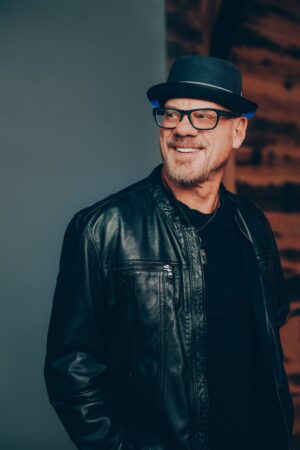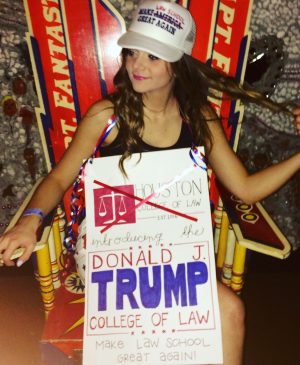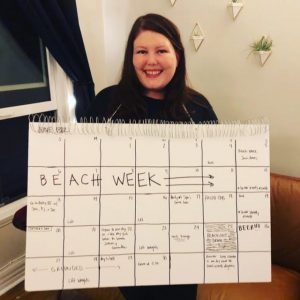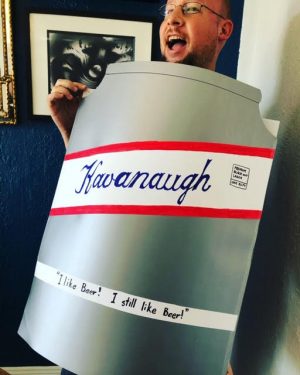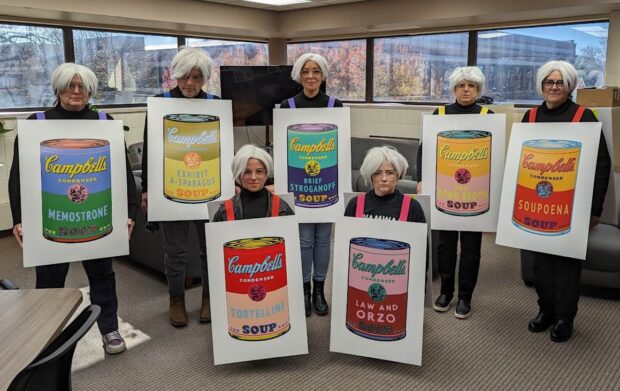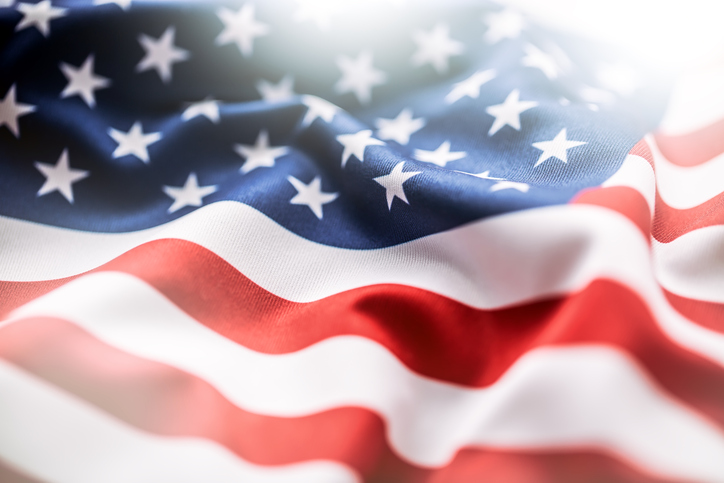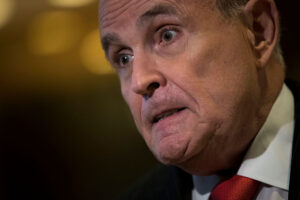Phil
Vassar
(Courtesy
photo)
It’s
the
record-setting
first
day
of
a
Minnesota
State
Fair
that
will
see
many
attendance
records
toppled.
Based
on
the
size
of
the
crowd
already
gathered
an
hour
before
his
show,
Phil
Vassar
had
a
little
something
to
do
with
that.
Fairgoers
were
lucky.
Substitute
a
few
moments
of
hesitation
for
decisive
action
under
pressure,
and
Vassar
would
not
have
been
there
to
headline
these
first
two
nights.
“Touring
means
more
to
me
now
than
ever,
honestly,”
says
Vassar,
62.
“I
don’t
know
if
you
know,
but
I
had
a
heart
attack
last
year.
I’m
the
guy
who
never
drank.
All
my
buddies,
ha,
they
pounded
it
hard,
they’re
still
rocking.
And
I’m
the
one
who
just
drops
dead.”
It
took
10
shocks
from
an
AED
to
restart
Vassar’s
failing
heart.
On
his
tour
bus
—
once
owned
by
country
music
legend
George
Jones
—
I
speak
to
the
woman
who
found
him,
ashen,
unconscious,
as
he
succumbed
to
his
cardiac
event.
She
performed
CPR,
did
it
the
right
way:
with
multiple
ribs
fractured.
She
saved
Vassar’s
life.
She
is
shy,
and
I
don’t
think
would
want
to
be
named
in
print.
“It
was
very
humbling,”
says
Vassar.
“You
think
you’re
bulletproof,
but
you’re
not.
I’m
very
blessed.
Very,
very
thankful.”
The
heat
of
the
day
has
dissipated.
A
cool
breeze
wafts
in
the
scent
of
damp
wood
chips
from
the
nearby
car
dealership
booths
where
shredded
trees
protect
the
earth
from
the
weight
of
multi-ton
SUVs.
To
the
south,
the
capsule
atop
the
Space
Tower
ride
spins
lazily.
Onstage,
Vassar’s
piano
awaits.
Vassar
is
a
Virginia
native
and
Nashville
transplant,
but
he
practices
“Minnesota
nice”
as
though
born
to
it.
Friends
and
well-wishers
stream
in
and
out
of
the
green
room
before
the
show.
One
of
them,
a
former
math
teacher
from
Eau
Claire
named
Mr.
Kent,
met
Vassar
at
one
of
his
concerts
20
years
prior.
Mr.
Kent
has
been
welcomed
backstage
warmly
ever
since.
Tonight,
he
bears
a
gift:
a
brand-new
Eau
Claire
Bears
baseball
cap.
With
10
minutes
’til
showtime,
Vassar
steps
out
to
change.
His
bandmate
David
Black
cranks
up
the
music
and
begins
assaulting
an
easy
chair
with
a
pair
of
drumsticks.
Five
minutes
to
showtime.
“Time
to
make
the
donuts!”
Black
shouts,
before
the
thwacking
stops
abruptly
and
he
sprints
out
of
the
room.
“Break
a
leg!”
I
call
after
him.
“I’ll
certainly
try,”
comes
echoing
back
down
the
hallway.
Outside,
a
slash
of
crimson
paints
the
horizon.
Right
on
time
at
8:30,
the
band
takes
the
stage.
The
crowd
erupts,
and
the
first
notes
of
“That’s
When
I
Love
You”
drown
out
the
cheers.
Then
comes
“Carlene.”
“C’mon!”
Vassar
cries
into
the
microphone
after
the
first
verse
of
“Bye
Bye.”
The
crowd
howls.
By
the
time
they
launch
into
“In
a
Real
Love”
the
sky
looks
like
a
week-old
bruise.
Vassar
asks
the
crowd
to
sing
along
to
“My
Next
30
Years”
—
which
you
might
know
as
a
Tim
McGraw
song,
though
Tim
McGraw
knows
it
as
a
Phil
Vassar
song.
On
Vassar’s
30th
birthday,
the
song
came
tumbling
out
of
him
in
10
or
20
minutes,
“as
fast
as
[he]
could
write
it.”
“Love
Is
a
Beautiful
Thing”
follows,
and
“Six-Pack
Summer.”
People
shout
out
requests.
Vassar
banters
with
the
crowd,
tells
them
how
he
wrote
this
song
after
his
kitchen
flooded,
and
pounds
out
the
unmistakable
opening
notes
of
“Just
Another
Day
in
Paradise.”
“Thanks
again
for
having
us
to
the
state
fair,”
Vassar
purrs
into
the
microphone.
“We
appreciate
this.”
I
try
to
keep
track
of
how
many
times
he
says
“thank
you”
or
otherwise
expresses
gratitude.
I
lose
count
somewhere
into
the
second
dozen.
More
music
pours
from
the
keys.
It’s
hit
after
hit
from
Vassar’s
storied
career,
along
with
a
few
carefully
selected
covers.
On
the
final
lyrics
of
“American
Child,”
fireworks
go
off,
literally.
Boom,
crack,
pop!
Reds,
blues,
greens,
and
yellows
light
the
sky
overhead.
Each
explosion
accentuates
a
line
of
“For
a
Little
While.”
A
security
guard
who
I’d
been
chatting
with
earlier
saunters
up
and
pulls
out
her
earplugs.
“The
fireworks
mean
the
concert’s
over,”
she
yells
directly
into
my
ear.
Nope.
More
old
favorites
reverberate
into
the
fairgrounds.
Nearly
unique
in
country
music
of
his
era,
Vassar’s
lyrics
tackle
complex
topics
—
aging,
introspection,
maintaining
long-term
friendships,
even
LGBTQ+
tolerance
—
not
just
partying,
falling
in
love,
and
heartbreak
(of
course,
there
are
a
few
excellent
examples
of
those
ones
too).
Despite
occasionally
heavy
subject
matter,
the
energy
never
ebbs.
“It’s
fun,
and
it’s
supposed
to
be
fun,”
Vassar
had
said
earlier
of
his
music.
“People
take
everything
so
seriously.”
At
the
end
of
“I’m
Alright”
there’s
a
big
drum
solo.
Had
he
been
playing
it
back
in
the
green
room,
Black
would
have
reduced
that
easy
chair
to
splinters.
“Scream
for
the
band
up
here
too!”
says
Vassar.
They
scream.
It’s
pitch
black
now,
and
this
time
the
end
really
is
near.
They
close
out
the
show
with
a
cover
of
“Piano
Man.”
The
crowd
sways,
the
crowd
sings,
all
of
them
entranced.
Vassar
addresses
everyone
one
last
time.
“Thank
you
all
so
much,
God
bless
you
guys!”
One
row
stands
up,
then
another,
then
another,
in
a
rapidly
swelling
wave.
I
peer
at
my
watch
and
see
the
second
hand
make
a
couple
loops.
Eventually
the
standing
ovation
subsides.
He’s
barely
offstage
before
he’s
inviting
me
onto
the
tour
bus.
“I
feel
great
now,”
says
Vassar.
“I’ve
never
felt
this
good.”
In
trying
to
describe
what
took
place
on
the
first
night
of
the
fair,
the
word
“triumph”
comes
to
mind.
A
year
prior
Vassar
was
a
tenth
shock
away
from
never
making
it
to
this
time,
this
place.
Three
years
before
that,
the
Minnesota
State
Fair
itself
fell
to
the
coronavirus.
Yet,
here
we
all
are:
the
first
day
of
the
fair
finally
recovered
to
surpass
its
prepandemic
glory;
Phil
Vassar,
risen
from
the
dead,
never
missing
a
beat
as
its
opening
late-night
act.
It’s
an
unarticulated
celebration
of
the
joy
in
everything
that
might
not
have
been,
but
is.
Vassar
is
being
considered
for
the
ASCAP
Nashville
Songwriters
Hall
of
Fame,
and
I
truly
hope
he’s
inducted.
No
one
deserves
it
more.
Whatever
happens,
though,
whatever
life
has
in
store
for
Phil
Vassar’s
second
act,
one
aspect
of
his
legacy
is
now
written
in
stone:
Phil
Vassar
is
a
state
fair
legend.
Jonathan
Wolf
is
a
civil
litigator
and
author
of Your
Debt-Free
JD
(affiliate
link).
He
has
taught
legal
writing,
written
for
a
wide
variety
of
publications,
and
made
it
both
his
business
and
his
pleasure
to
be
financially
and
scientifically
literate.
Any
views
he
expresses
are
probably
pure
gold,
but
are
nonetheless
solely
his
own
and
should
not
be
attributed
to
any
organization
with
which
he
is
affiliated.
He
wouldn’t
want
to
share
the
credit
anyway.
He
can
be
reached
at [email protected].
 Chris
Chris




 Kathryn
Kathryn
